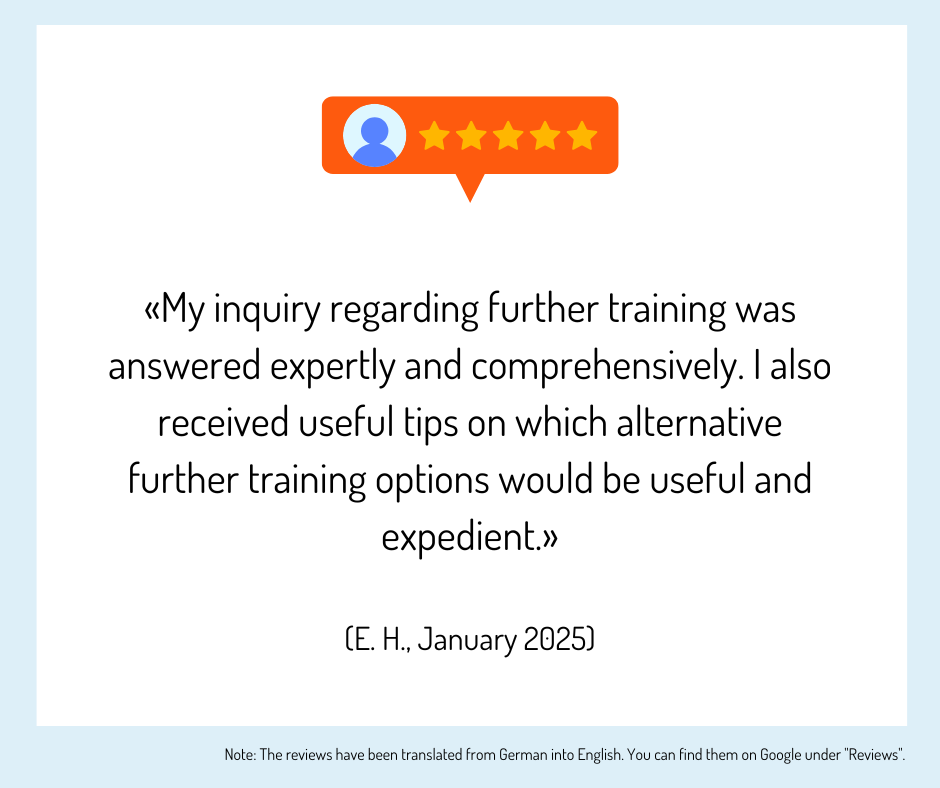Financial accounting (cert.) (Region Virtuelles Klassenzimmer):
2 Provider
Request convenient free information on Financial accounting: course, training, continuing education, further training, seminar, information and schools from the providers of your choice below now.
The following list shows you various "Financial Accounting (Cert.)" courses:
Questions and answers
What is the difference between financial accounting (FiBu) and operational accounting (BeBu)?
Accounting is divided into financial accounting (financial accounting) and operational accounting (operational accounting). Mandatory financial accounting (FiBu) records current business transactions as a cash flow statement - expenses and income. Voluntary operational accounting (BeBu) presents the internal accounts of a company in actual values in the form of costs and revenues.
In principle, accounting serves as a means of accountability for the operations manager vis-à-vis his various stakeholders and as a management tool for the operations management. Accounting allows decisions to be made, investments to be planned and changes to be monitored.
What are the financial accounting basics?
The financial accounting basics are:
- Accounting basics
- Business transactions (chart of accounts, VAT, goods accounts)
- Account system
- Income statement
- Opening balance sheet
Fi Bu: What is done in financial accounting?
Financial accounting (Fi Bu) is part of a company's accounting system and records all operational transactions that lead to a cash flow. This includes income and expenditure. Alternative sub-areas of accounting are accounts receivable accounting or accounts payable accounting. All companies with an annual turnover of more than CHF 500,000 in the last financial year are obliged to keep double-entry bookkeeping, including the preparation of annual financial statements and a balance sheet.
What is financial accounting simply explained?
Financial accounting explained simply:
- A sub-area of operational accounting
- Covers all business transactions that can be expressed in figures
- All expenses and income are included
- In large companies, financial accounting is further subdivided into accounts payable (incoming invoices) and accounts receivable (outgoing invoices)
Tips, tests and information on "Financial accounting (cert.)"
Erfahrungen, Bewertungen und Meinungen zur Ausbildung / Weiterbildung
Haven't found the right training or further education yet? Benefit from educational advice now!
Further training is not only important in order to maintain or increase professional attractiveness, investing in training or further training is still the most efficient way to increase the chances of a pay rise.
The Swiss education system offers a wide range of individual training and further education opportunities - depending on your personal level of education, professional experience and educational goals.
Choosing the right educational offer is not easy for many prospective students.
Which training and further education is the right one for my path?
Our education advisory team will guide you through the "education jungle", providing specific input and relevant background information to help you choose the right offer.
Your advantages:
You will receive
- Suggestions for suitable courses, seminars or training programs based on the information you provide in the questionnaire
- An overview of the different levels and types of education
- Information about the Swiss education system
We offer our educational counseling in the following languages on request: French, Italian, English
Register now and concretize your training plans.












